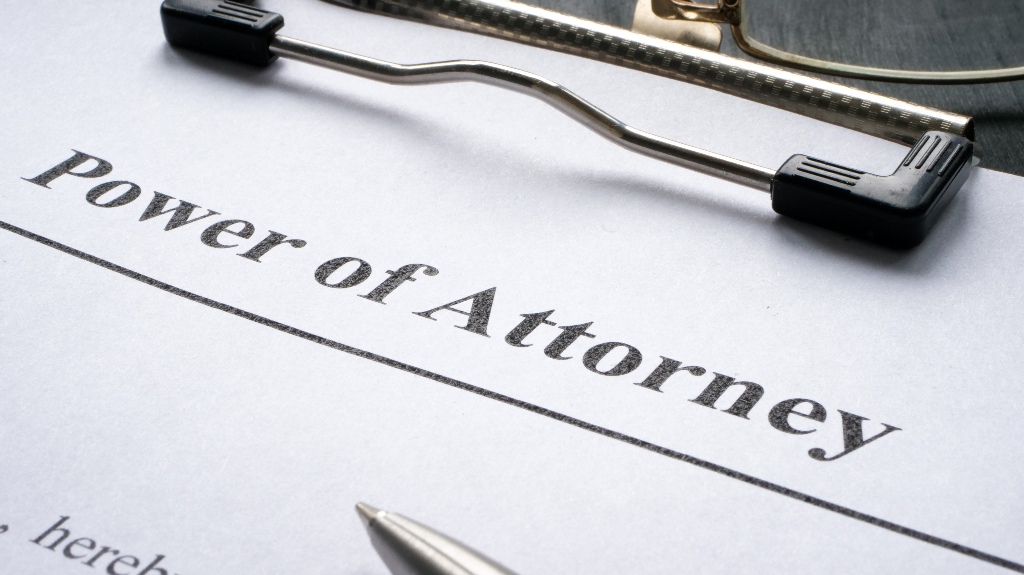Power of attorney is a legal device that allows one person to act on another’s behalf, sometimes when the principal is disabled due to injury, age, or illness, or absent due to military service. The format allows for the principal to set limits; the default is for ongoing power of attorney but others are in effect only until the principal is deemed incapable of making their own decisions. Using power of attorney requires specific legal steps and carries significant responsibility.
Estate planning often includes a provision for power of attorney because it is the act of looking into the future, when the owner of property and assets conveys assets to their heirs. South Carolina has some specific rules for power of attorney, including that the agent (holding and/or exercising power of attorney) should be at least 18 years old, it must be witnessed by two disinterested adults, and the document must be notarized, then filed. If setting up a power of attorney, be sure to use a form that’s specific to your state.
Forms of Power of Attorney
There are several specific types of power of attorney, each having its own limitations and regulations. Using the right type of power of attorney will limit any challenges to the agent’s authority. Consider these types:
- General. This power of attorney takes effect when it is signed. Unlike a “springing” power of attorney, it’s there is no precipitating event defined. The document should describe any limitations to the agent’s ability to handle the principal’s assets, finances, and property.
- Durable. This form of power of attorney continues even when the principal becomes incapacitated. Durable power of attorney is assumed in South Carolina unless the document states otherwise.
- Financial. The agent is limited to handling the principal’s financial dealings only, such as writing checks, making investments, and paying bills.
- Limited. This power of attorney is strictly confined to specific circumstances and clearly defines the role of the agent.
- Medical. The agent holding a medical power of attorney can make all necessary decisions for the principal, including in an end-of-life situation.
The power of attorney expires when the task it was created for is completed, if it’s invalidated by a court, or when the agent dies. Throughout the process the agent is required to act with loyalty, due diligence, and to carefully track related expenses and other paperwork.
Benefits of Power of Attorney in Estate Planning
Estate planning experts suggest power of attorney documents as an integral part of an estate plan. Reasons for including a power of attorney in your estate plan include:
- Keeping accounts current. Your estate plan will be less complicated if your bills are paid and accounts are well managed.
- Avoiding guardianship. If you, as principal of your estate, are disabled but do not have a power of attorney, a judge assigns a guardian for you. This person is unlikely to know your wishes for your estate, unlike an agent you appoint to carry out your wishes.
- Making medical decisions. Having a conversation about your medical choices with the agent chosen to have your medical power of attorney ensures that your wishes are followed when you are incapacitated.

Limitations of Power of Attorney
An agent having power of attorney for another person can be given many responsibilities but they cannot:
- revise a will or estate plan,
- replace a will,
- make changes to marriage certificates, or
- vote on behalf of the principal.
Only those power of attorney plans that have been properly witnessed, notarized, and filed in the county registrar of deeds office are legally binding.
Make Power of Attorney Work for You
Discuss your estate plan with an expert at Lam Law Firm to ensure that your needs are covered. We ensure that clients have considered all potential angles, executed the paperwork properly, and understand the ramifications of power of attorney when putting together an estate plan. You can trust us with your estate planning needs.





